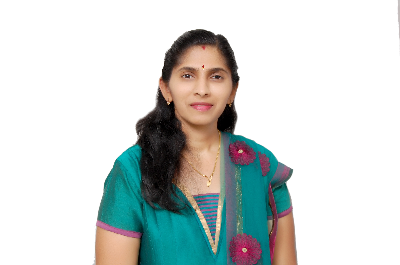
A graph showing macroeconomic condition of India would give an appearance of deep trench. This trench is not because of usual trade cycle but an unusual occurrence of pandemic crisis that has caused the whole world to stop functioning at one go. The effects of this pandemic differs in different countries but has affected every other country in the world whether it is developed, developing or under-developed. Talking about a developing country, In...
|

COVID Blogs
Some better off, some worse off
Various economic theories will lag behind in explaining the economic effects of the current pandemic situation that is prevailing all over the world. Many activities have been restrained or curbed that have made the economy sta...
|

Like Universal Basic Income talk over in these days, Universal Health Coverage had been a policy debate since many years, the result of which have been seen in myriad central and states government policies. India has been on slow pace to initiate a robust foundation policy which will define health coverage for all under a single programme. It has initiated many health policies differentiated on income and gender basis, for example, Rashtriya Swasthiya Bima Yojana, Employment State Insurance S...
|

Responding to the Union Budget announcement that 80 million poor families will benefit from free liquefied cooking gas, Krishnavatar Sharma, Co-Founder and Director of Programmes at Aajeevika Bureau, said:
“Our Finance Minister Arun Jaitley is right to recognise the ‘curse of smoke’ for the women of India. Women spend time and energy collecting firewood and plastic to cook with, and in turn suffer from lifelong health problems. The wom...
|

NHM workers demand regularisation of their posts
On the 17th of January 2018, the National Health Mission workers went on a national strike. According to the Central Trade Unions, more than one crore scheme workers are working under various central and state government schemes including around 27 lakh Anganwadi, Mini Anganwadi Workers and Helpers under the ICDS Scheme, nearly 28 lakh Mid Day Meal Workers under the MDM Scheme and aroun...
|

"The Anganwadi workers in Maharashtra are on strike since 12th September 2017. The state authorities have directed the Asha workers to now to take over the Anganwadi duties. One of the leading trade unions has refused. At the district level, official orders have been sent to identify and send names of non co-operating Ashas. This has resulted in tremendous stress among the Ashas. It is very damaging to pitch one village health worker against the other in this manner. It is als...
|

Evidence is an important part of everyday lives. From choosing fuel for our vehicle, why CNG is environment friendly, to something as big as a court case, everything has its basis on the evidence. From choosing between jobs and to ubiquitous religious belief. The outcome of many criminal law cases depends upon the strength and admissibility of evidence-including physical proof, scientific evidence and witness testimony, owing to enactment of Indian Evidence Act in 1872. Access to accurate and...
|

The impact of demonetisation is immense and it is bound to have positive impact in the long run via different channels of transmission. The different transmission channels are explained below in detail.
The more cash in the coffers of bank and financial institutions would lead to lower lending rate of interest which can boost investment and hence the growth of Indian GDP. The easy availability of loan will bring many unbanked and poor section of the society un...
|

This morning I was roped in to speak about the impacts of demonetisation on migrant workers by Gurgaon ki Awaz, a community radio station in Gurgaon, where I live. I was speaking on a live show with the mandate to highlight systemic problems that might impact migrant workers in particular ways in this predicament, when cash is hard to access. To offer context to those outside India, currency notes of particular denominations (Rs 5...
|

(The Article was written in 2015)
At present, recovering from a concatenation of untoward macroeconomic events in the recent past, including global financial meltdown and running inflation, Indian economy witnesses an improvement on the economic front, albeit creeping. The Inter...
|